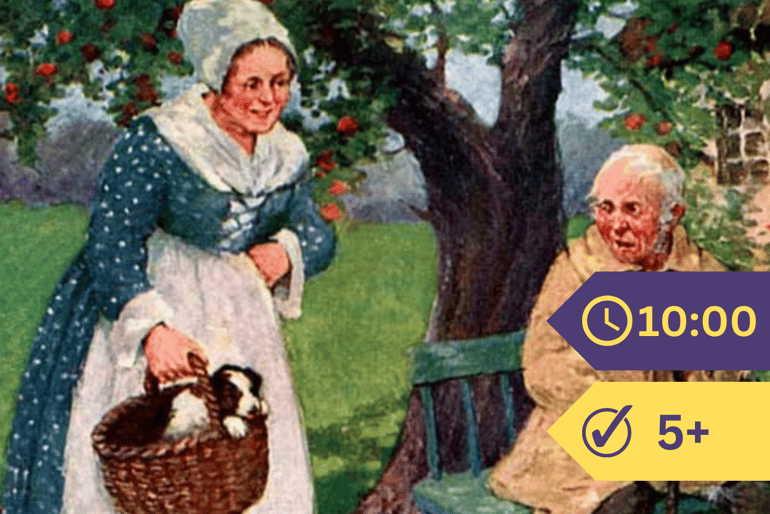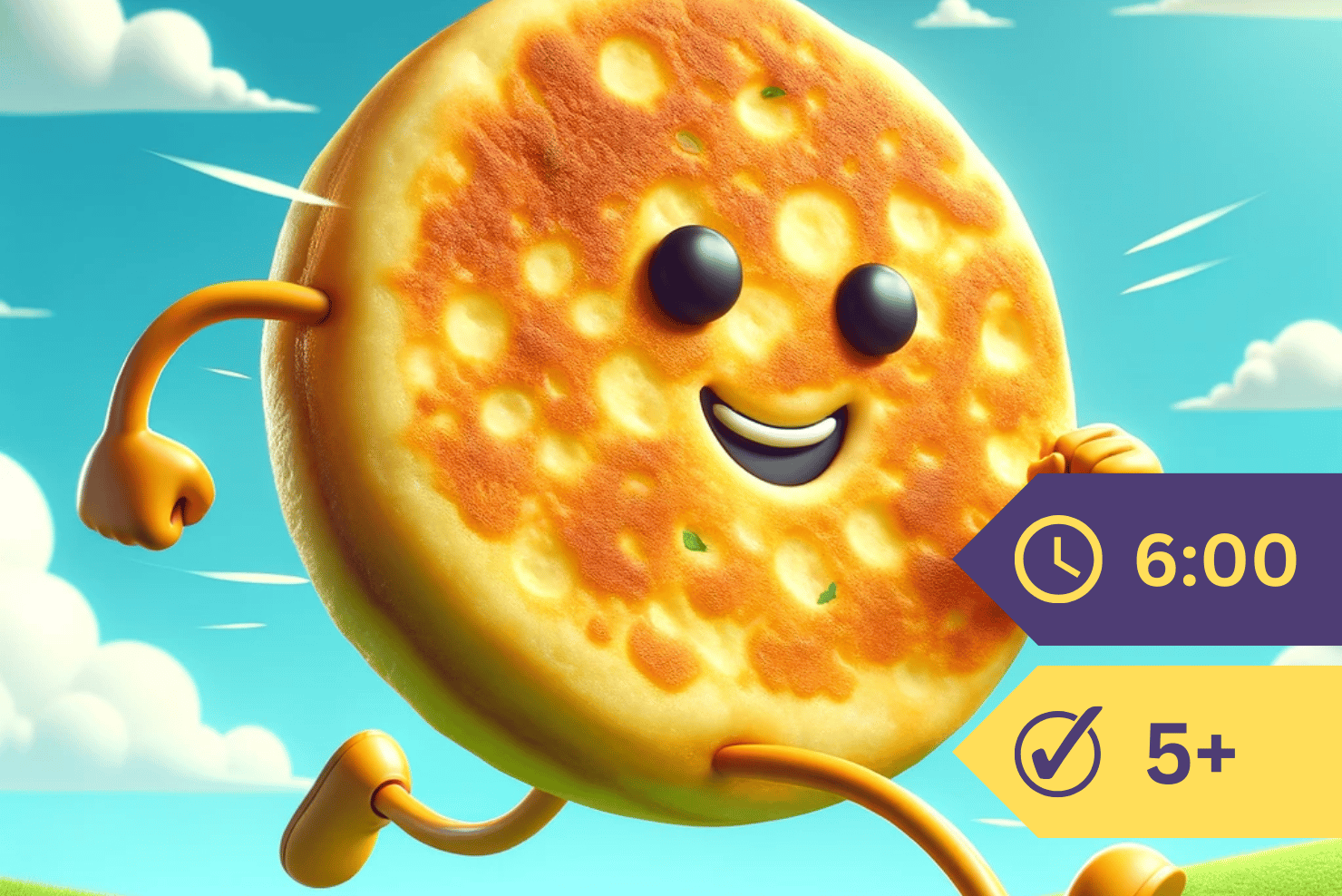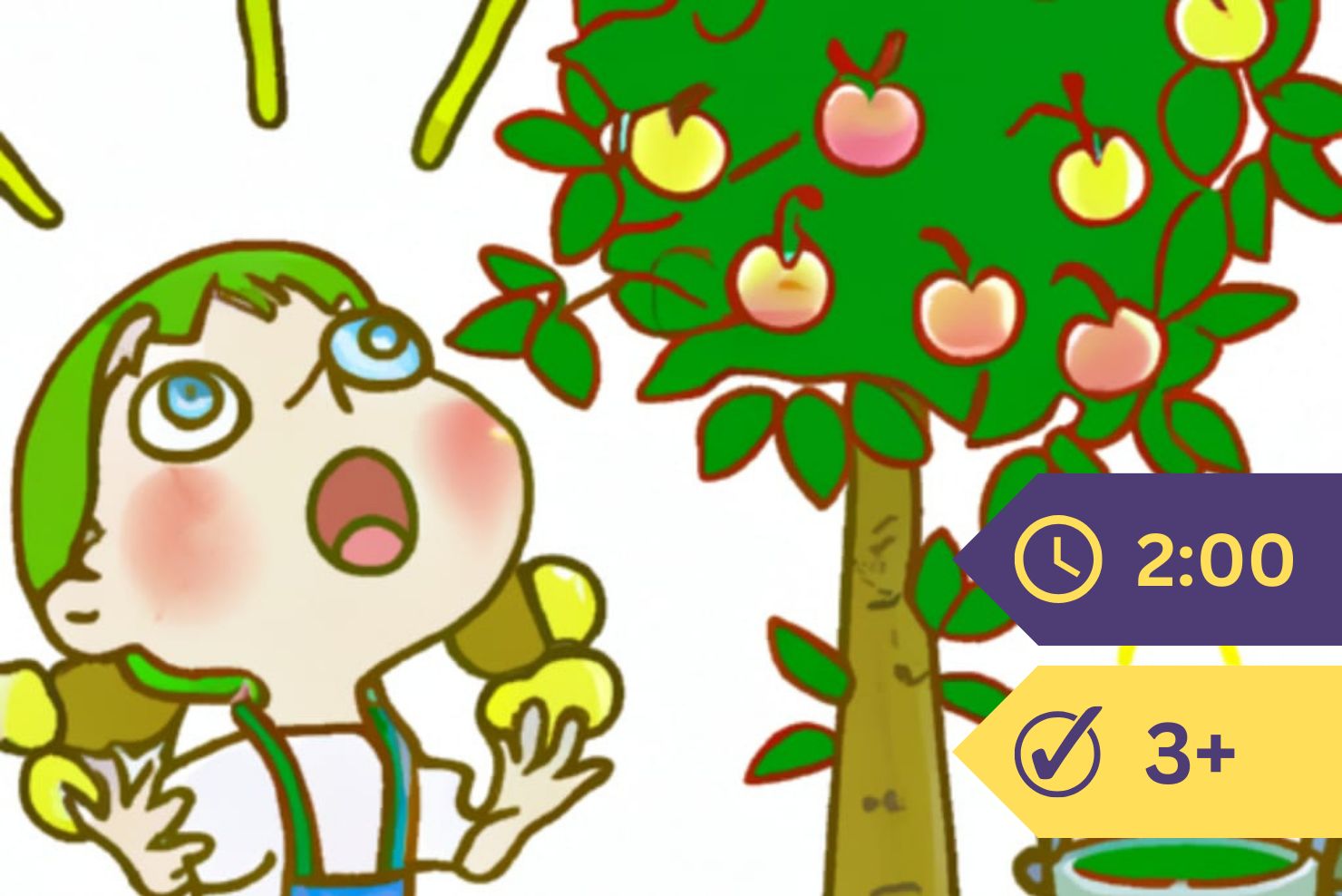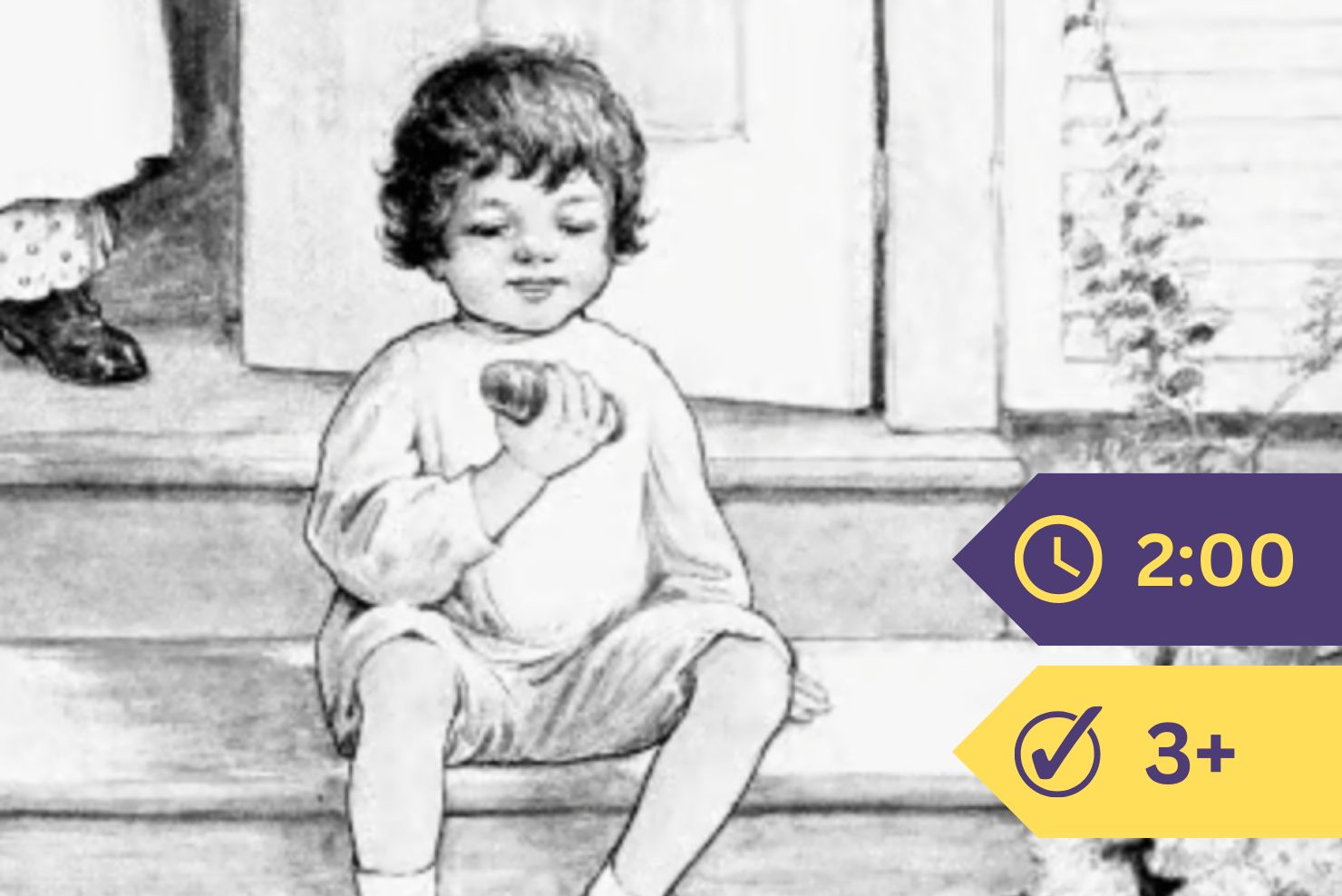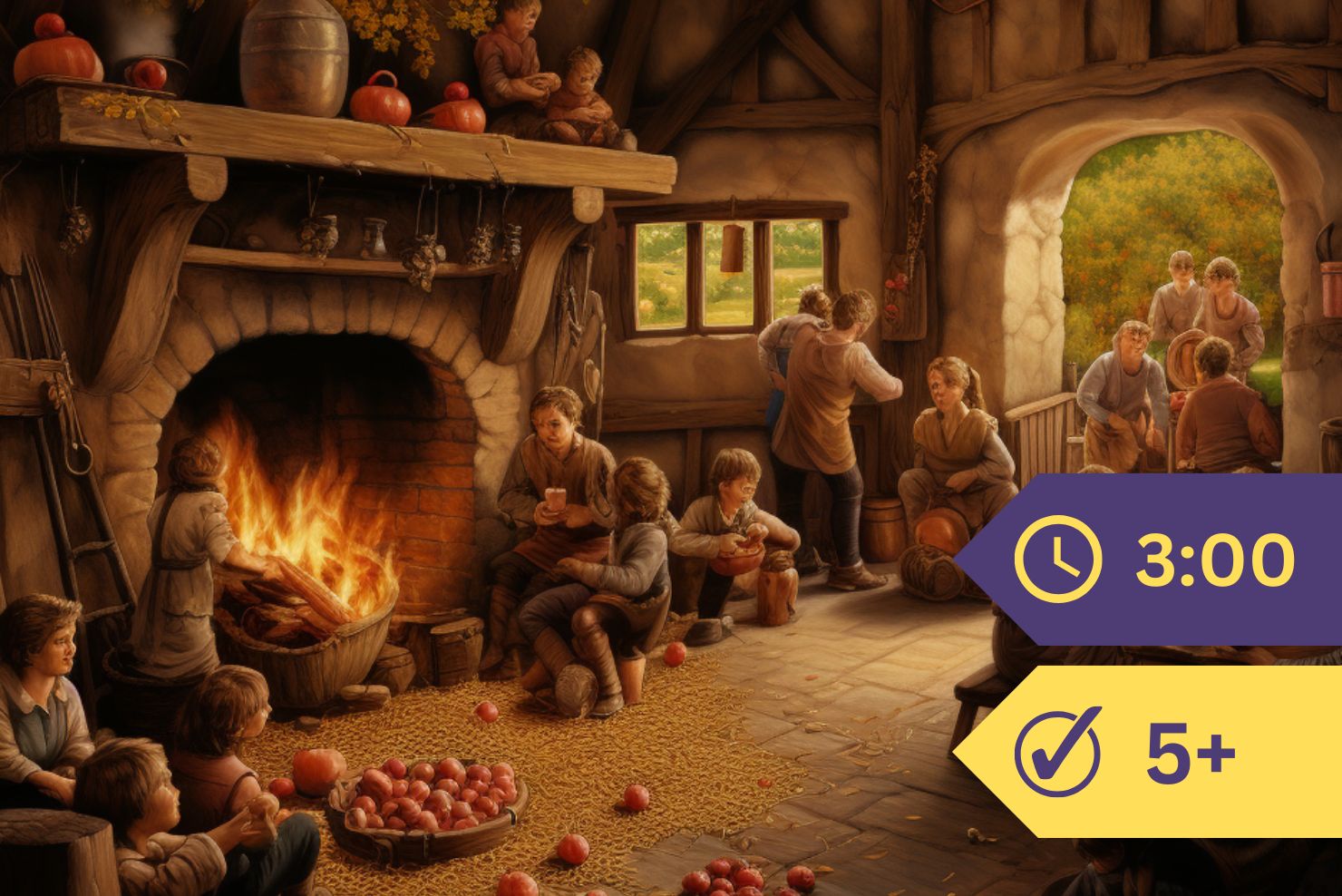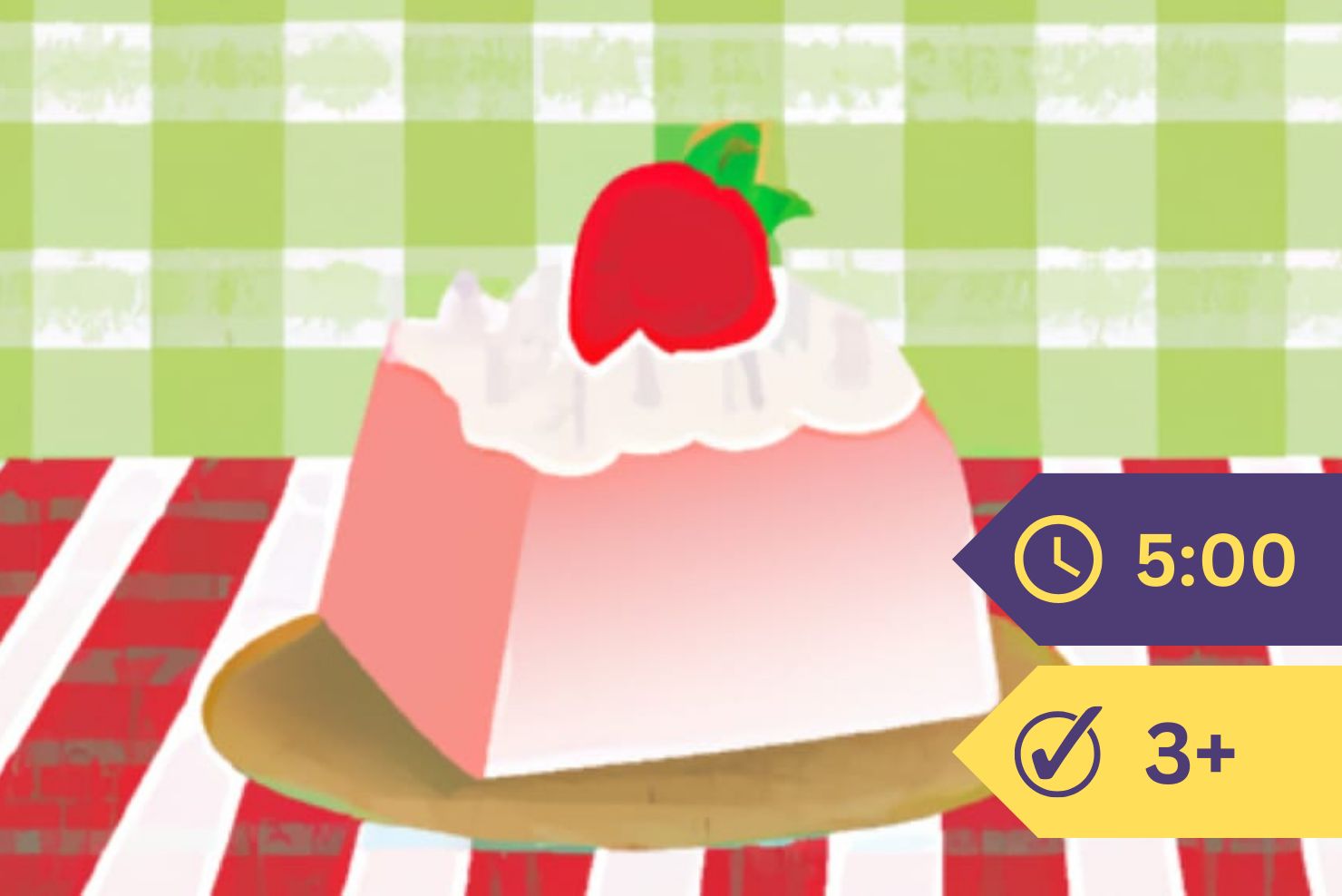There was once upon a time an old woman who wanted an apple dumpling for supper. She had plenty of flour and plenty of butter, plenty of sugar and plenty of spice for a dozen dumplings, but there was one thing she did not have; and that was an apple.
She had plums, a tree full of them, the roundest and reddest that you can imagine; but, though you can make butter from cream and raisins of grapes, you cannot make an apple dumpling with plums, and there is no use trying.
The more the old woman thought of the dumpling the more she wanted it, and at last she dressed herself in her Sunday best and started out to seek an apple.
Before she left home, however, she filled a basket with plums from her plum-tree and, covering it over with a white cloth, hung it on her arm, for she said to herself: “There may be those in the world who have apples, and need plums.”
She had not gone very far when she came to a poultry yard filled with fine hens and geese and guineas. Ca-ca, quawk, quawk, poterack! What a noise they made; and in the midst of them stood a young woman who was feeding them with yellow corn. She nodded pleasantly to the old woman, and the old woman nodded to her; and soon the two were talking as if they had known each other always.
The young woman told the old woman about her fowls and the old woman told the young woman about the dumpling and the basket of plums for which she hoped to get apples.
“Dear me,” said the young woman when she heard this, “there is nothing my husband likes better than plum jelly with goose for his Sunday dinner, but unless you will take a bag of feathers for your plums he must do without, for that is the best I can offer you.”
“One pleased is better than two disappointed,” said the old woman then; and she emptied the plums into the young woman’s apron and putting the bag of feathers into her basket trudged on as merrily as before; for she said to herself:
“If I am no nearer the dumpling than when I left home, I am at least no farther from it; and that feathers are lighter to carry than plums nobody can deny.”
Trudge, trudge, up hill and down she went, and presently she came to a garden of sweet flowers; lilies, lilacs, violets, roses—oh, never was there a lovelier garden!
The old woman stopped at the gate to look at the flowers; and as she looked she heard a man and a woman, who sat on the door-step of a house that stood in the garden, quarreling.
“Cotton,” said the woman.
“Straw,” said the man.
“‘Tis not—”
“It is,” they cried, and so it went between them, till they spied the old woman at the gate.
“Here is one who will settle the matter,” said the woman then; and she called to the old woman:
“Good mother, answer me this: If you were making a cushion for your grandfather’s chair would you not stuff it with cotton?”
“No,” said the old woman.
“I told you so,” cried the man. “Straw is the thing, and no need to go farther than the barn for it;” but the old woman shook her head.
“I would not stuff the cushion with straw,” said she; and it would have been hard to tell which one was the more cast down by her answers, the man or the woman.
But the old woman made haste to take the bag of feathers out of her basket, and give it to them.
“A feather cushion is fit for a king,” she said, “and as for me, an apple for a dumpling, or a nosegay from your garden will serve me as well as what I give.”
The man and the woman had no apples, but they were glad to exchange a nosegay from their garden for a bag of fine feathers, you may be sure.
“There is nothing nicer for a cushion than feathers,” said the woman.
“My mother had one made of them,” said the man; and they laughed like children as they hurried into the garden to fill the old woman’s basket with the loveliest posies; lilies, lilacs, violets, roses—oh! never was there a sweeter nosegay.
“A good bargain, and not all of it in the basket,” said the old woman, for she was pleased to have stopped the quarrel, and when she had wished the two good fortune and a long life, she went upon her way again.
Now her way was the king’s highway, and as she walked there she met a young lord who was dressed in his finest clothes, for he was going to see his lady love. He would have been as handsome a young man as ever the sun shone on had it not been that his forehead was wrinkled into a terrible frown, and the corners of his mouth drawn down as if he had not a friend left in the whole world.
“A fair day and a good road,” said the old woman, stopping to drop him a courtesy.
“Fair or foul, good or bad, ’tis all one to me,” said he, “when the court jeweler has forgotten to send the ring he promised, and I must go to my lady with empty hands.”
“Empty hands are better than an empty heart,” said the old woman; “but then we are young only once; so you shall have a gift for your lady though I may never have an apple dumpling.” And she took the nosegay from her basket and gave it to the young lord which pleased him so much that the frown smoothed away from his forehead, and his mouth spread itself in a smile, and he was as handsome a young man as ever the sun shone on.
“Fair exchange is no robbery,” said he, and he unfastened a golden chain from round his neck and gave it to the old woman, and went away holding his nosegay with great care.
The old woman was delighted.
“With this golden chain I might buy all the apples in the king’s market, and then have something to spare,” she said to herself, as she hurried away toward town as fast as her feet could carry her.
But she had gone no farther than the turn of the road when she came upon a mother and children, standing in a doorway, whose faces were as sorrowful as her own was happy.
“What is the matter?” she asked as soon as she reached them.
“Matter enough,” answered the mother, “when the last crust of bread is eaten and not a farthing in the house to buy more.”
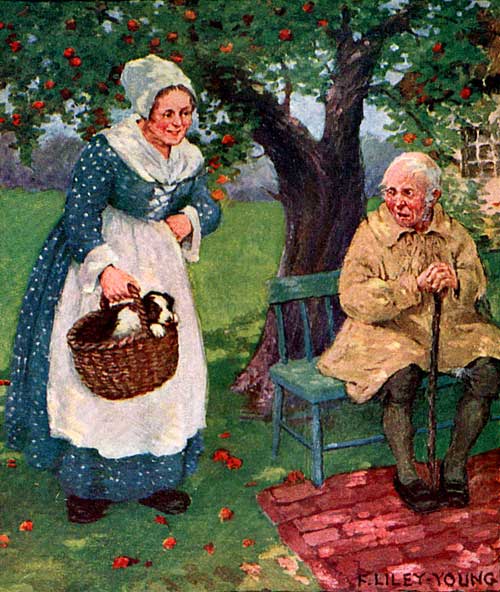
“Well-a-day,” cried the old woman when this was told her. “Never shall it be said of me that I eat apple dumpling for supper while my neighbors lack bread;” and she put the golden chain into the mother’s hands and hurried on without waiting for thanks.
She was not out of sight of the house, though, when the mother and children, every one of them laughing and talking as if it were Christmas or Candlemas day, overtook her.
“Little have we to give you,” said the mother who was the happiest of all, “for that you have done for us, but here is a little dog, whose barking will keep loneliness from your house, and a blessing goes with it.”
The old woman did not have the heart to say them nay, so into the basket went the little dog, and very snugly he lay there.
“A bag of feathers for a basket of plums; a nosegay of flowers for a bag of feathers; a golden chain for a nosegay of flowers; a dog and a blessing for a golden chain; all the world is give and take, and who knows but that I may have my apple yet,” said the old woman as she hurried on.
And sure enough she had not gone a half dozen yards when, right before her, she saw an apple-tree as full of apples as her plum-tree was full of plums. It grew in front of a house as much like her own as if the two were peas in the same pod; and on the porch of the house sat a little old man.
“A fine tree of apples!” called the old woman as soon as she was in speaking distance of him.
“Aye, but apple-trees and apples are poor company when a man is growing old,” said the old man; “and I would give them all if I had even so much as a little dog to bark on my door-step.”
“Bow-wow!” called the dog in the old woman’s basket, and in less time than it takes to read this story he was barking on the old man’s door-step, and the old woman was on her way home with a basket of apples on her arm.
She got there in plenty of time to make the dumpling for supper, and it was as sweet and brown a dumpling as heart could desire.
“If you try long enough and hard enough you can always have an apple dumpling for supper,” said the old woman; and she ate the dumpling to the very last crumb; and enjoyed it, too.

